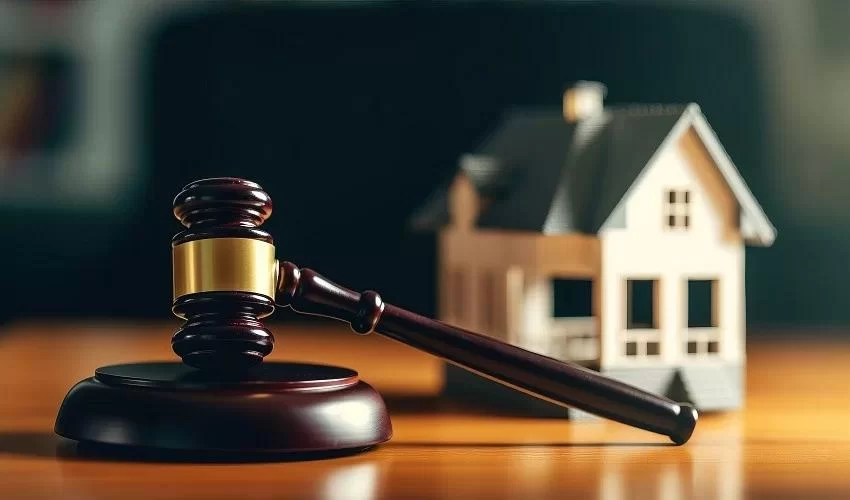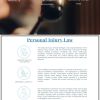Facing Foreclosure: Why You Need Legal Advice
If you’ve recently received a foreclosure notice or you’re struggling to make mortgage payments, the situation may feel overwhelming. Foreclosure can be a scary and confusing process, but with the right legal advice and support, it doesn’t have to end in losing your home. Let me take you through the important steps you can take, and how the right legal guidance can make all the difference in your foreclosure defense.
Understanding Foreclosure in the United States
Foreclosure occurs when a lender or mortgage company takes legal action to repossess a home due to the homeowner’s failure to pay the mortgage. This process can vary depending on the state you live in, but the underlying principle is the same: the lender takes ownership of the property to recover the unpaid debt.
When I first worked with a family facing foreclosure, they felt helpless. They had fallen behind on payments due to a sudden medical emergency, and despite their best efforts, their lender began proceedings to take possession of their home. What they didn’t realize was that foreclosure is not a straightforward process. There are multiple defenses, delays, and strategies that can be employed to fight back. In many cases, legal intervention can give homeowners more time to work out a solution or, in the best cases, stop the foreclosure altogether.
When Should You Seek Legal Help?
Many homeowners mistakenly believe that they are powerless once the foreclosure process begins, but that’s not true. As soon as you receive notice of foreclosure, you should seek legal advice to understand your rights. Here are some situations where it’s especially critical to reach out to a lawyer:
- When You Can’t Afford Payments: If you’ve missed payments and are behind on your mortgage, don’t wait for the foreclosure process to go too far before seeking legal advice. Lawyers can help negotiate with the lender and potentially prevent foreclosure altogether.
- If You Receive a Foreclosure Notice: Receiving a foreclosure notice is a sign that your lender is moving forward with legal action. A lawyer will help you understand what comes next and what defenses you may have to delay or stop the process.
- To Explore Your Defenses: There are several defenses you might have against foreclosure, including errors in the mortgage paperwork, failure to follow the proper legal procedure, or predatory lending practices. An experienced lawyer can identify and use these defenses in your case.
- In Case of a Mortgage Modification Denial: If you’ve tried to work out a modification with your lender and were denied, a lawyer may be able to help you appeal or explore other options like a short sale or deed in lieu of foreclosure.
How Foreclosure Defense Lawyers Can Help
A foreclosure defense lawyer is a specialized attorney who focuses on helping homeowners protect their rights during the foreclosure process. Their job is to evaluate your case, identify potential defenses, and work to delay or prevent foreclosure from happening. Here’s how they can assist:
Negotiating with Lenders
One of the first actions your lawyer will take is to communicate with your lender on your behalf. They will attempt to negotiate a solution, such as a loan modification, repayment plan, or forbearance agreement, which can provide you with the opportunity to catch up on your mortgage payments without losing your home.
In my experience, lenders are often more willing to work with a lawyer than with an individual homeowner. A skilled foreclosure defense lawyer can advocate for your best interests and present compelling reasons for the lender to offer you a modification or another arrangement to avoid foreclosure.
Defending Against Foreclosure in Court
If your case goes to court, having an attorney is absolutely essential. A lawyer specializing in foreclosure defense can assess whether the lender has followed all legal procedures correctly. They may find flaws in the foreclosure process that can result in delays or dismissal of the case. Common defenses include:
- Failure to Provide Proper Notice: If the lender failed to properly notify you of the foreclosure or other required documents, this may be grounds for dismissal of the case.
- Payment Errors: If the lender has made errors in calculating your payments or applied payments incorrectly, your lawyer can challenge this in court.
- Predatory Lending Practices: If the lender used deceptive or unfair lending practices, this could be a defense against foreclosure.
Exploring Alternatives to Foreclosure
In some cases, foreclosure can be avoided through alternative measures. A foreclosure defense lawyer can help you explore the following options:
- Loan Modification: A loan modification alters the terms of your loan, such as lowering your monthly payments or extending the loan period, to make it more affordable.
- Short Sale: If you owe more on your mortgage than the home is worth, a short sale may allow you to sell the property for less than what you owe, with the lender’s approval.
- Deed in Lieu of Foreclosure: This involves giving the property back to the lender voluntarily in exchange for a release from the mortgage. It’s an alternative to foreclosure that can be less damaging to your credit.
- Bankruptcy: Filing for bankruptcy can temporarily halt foreclosure proceedings through an automatic stay. This gives you time to reorganize your finances and potentially save your home.
Real-Life Example: How Legal Help Stopped Foreclosure
Let me tell you about a case I worked on recently. A couple had fallen behind on their mortgage after one of them lost their job. They received a foreclosure notice and felt as though they were out of options. After consulting with a foreclosure defense lawyer, they discovered that the lender had not properly followed the legal process required to initiate foreclosure in their state.
The lawyer was able to argue that the lender’s failure to follow proper procedures should result in the case being dismissed. In the end, the foreclosure was halted, and the couple was able to negotiate a repayment plan with the lender that was manageable for them. Without legal advice, they likely would have lost their home.
Choosing the Right Foreclosure Defense Lawyer
When you’re facing foreclosure, the right attorney can make all the difference. Here are a few tips for choosing the best foreclosure defense lawyer:
- Experience: Look for a lawyer with experience handling foreclosure defense cases in your state. Laws vary by location, and a lawyer with local experience will know the ins and outs of the legal process.
- Reputation: Read reviews and ask for referrals to ensure the lawyer you choose has a strong track record of success in foreclosure defense.
- Personal Attention: Your lawyer should be responsive and attentive to your needs. Make sure they take the time to explain your options clearly and are available to answer any questions you have.
Facing foreclosure is daunting, but with the right legal advice, you don’t have to face it alone. If you’re in need of a foreclosure defense lawyer, be sure to find one who can guide you through the process and help protect your home and your financial future.


 lifelaw
lifelaw arthur nalbandyan
arthur nalbandyan 15 spinning wheel rd hinsdale il 60521
15 spinning wheel rd hinsdale il 60521 3100 47th ave long island city ny
3100 47th ave long island city ny jim alder attorney
jim alder attorney eviction lawyers in chicago
eviction lawyers in chicago